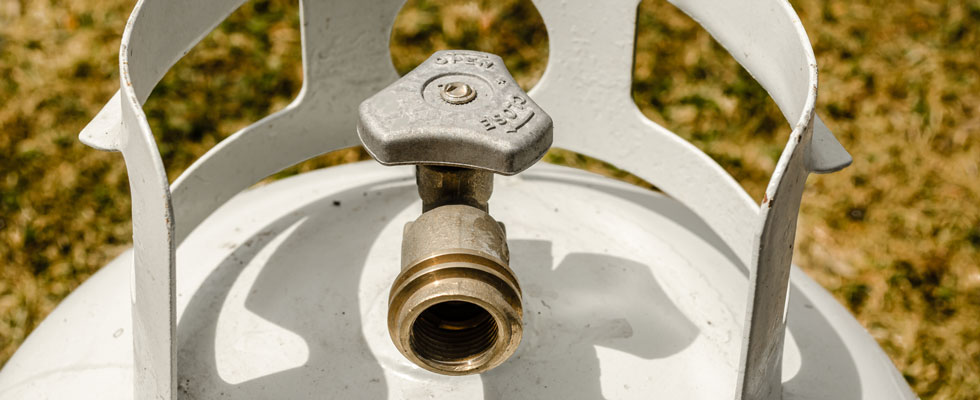
Recently, a jury returned a large verdict in favor of a man who sustained second-degree burn injuries in a propane grill flash fire incident. The retail propane distributor that supplied the 20-pound grill cylinder has asked the trial court to reverse and vacate the verdict.
Cylinder Exchange
The plaintiff purchased a three-burner grill at a local hardware store. He connected a filled 20-pound propane cylinder to the grill, and for the next four months, the grill was apparently used without incident.
The plaintiff then exchanged the original propane cylinder for a replacement cylinder under a standard cylinder exchange program. According to his subsequent lawsuit, the plaintiff connected the cylinder to the grill and lit the burners to cook a meal.
After some time had passed, he checked the progress of the cooking. He said that he observed that the flame was low or out and that the grill was not heating up properly.
Checking the Connection
The plaintiff claimed that he decided to check the connection between the tank and the grill, but when he opened the lower cabinet of the grill, there was a flash fire that caused second-degree burns on his face, arms, hands and abdomen.
The defense claimed that he failed to follow the warnings on the cylinder and in the instruction manual. Specifically, it claimed that he left the burner on before inspecting the tank connection, didn’t tighten the connection properly, used the cylinder out of its proper position and manipulated the connection while gas was flowing.
The plaintiff and his wife sued the grill manufacturer and the supplier of the cylinder. He claimed residual nerve damage in his hands, with resulting pain and numbness. He alleged that he could not garden or golf as often as before the incident. He also said that he now has anxiety when he is near propane or fire. His wife claimed loss of consortium. The plaintiffs subsequently entered into a confidential settlement with the grill manufacturer, and the case went to trial against the cylinder supplier.
Defective Valve?
Initially, the plaintiffs asserted that the cylinder valve was 17 years old and too worn to achieve a tight connection. They added that, in their opinion, the cylinder was not properly inspected before it was provided to the plaintiff. The defense responded that it inspected the cylinder and the valve outlet, which were in proper condition when the cylinder was delivered. It added that its inspection was in accordance with NFPA 58.
By the time of trial, the plaintiffs had enlisted two expert witnesses to attack the condition of the cylinder. Based on post-incident examination almost a year after the incident, they determined that the connection between the valve outlet and the hose to the grill burners was not closing properly and that this was the source of the leaking gas that ignited and caused the plaintiff’s injuries.
This, according to the plaintiffs’ counsel, rendered the cylinder defective and unreasonably dangerous, exposing the defendant to strict product liability for the damages sustained by the plaintiffs.
Alternative Causes
The defense conceded that the valve was in defective condition at the time of the post-incident inspection, but it argued that this did not mean the cylinder was defective at the time of the incident or at the time the cylinder left the possession of the defendant. In fact, the damage to the valve could have been caused by the intense heat of the incident itself.
In addition, the defense argued that there was a plausible alternative cause of the cylinder leak that the plaintiffs’ experts could not rule out. A loose connection between the valve and the regulator hose could have been combined with a sufficient side load (plaintiff could not recall whether he manipulated the cylinder while checking the connection) to cause the leak, even if the valve was not in defective condition.
Verdict & Motion
The jury returned a verdict against the cylinder supplier. It awarded substantial damages, and the defendant filed a motion to vacate the judgment. It asked that the court either enter judgment in its favor or at least order a new trial.
On the product liability claim, it was the burden of the plaintiffs to prove that the cylinder valve was in defective condition at the time it left the possession of the supplier. The defense argued that the fact that it was in defective condition almost a year later is insufficient to meet this burden, since the plaintiffs’ experts could not eliminate the possibility that the incident itself — or some other intervening cause — resulted in the condition of the valve. In addition, the experts could not rule out negligence by the plaintiff himself in not properly tightening the connection and manipulating the cylinder to cause a side load on the fitting.
‘Good Idea?’
The plaintiffs had also claimed that the supplier was negligent in inspecting the cylinder prior to its delivery. However, no evidence was offered to show that the inspection by the supplier did not meet the industry standard of care. One expert did offer that it would be a “good idea” to test every valve under regulated pressure on every cylinder exchange. This, argued the defense, was insufficient to establish that there was indeed an industry standard of care or practice to make such a test.
Additionally, the defense pointed to repeated violations of court stipulations and orders by the plaintiffs’ attorney in making inflammatory arguments to the jury. This, at a minimum, resulted in an excessive verdict and an unbalanced allocation of fault between plaintiff and defendant.
Finally, the defense invoked the court’s authority to reduce the damage award to a reasonable amount, since it was far in excess of the injuries actually sustained by the plaintiffs.
The court had still not ruled on the defense motion at the time of the writing of this article in early June.


